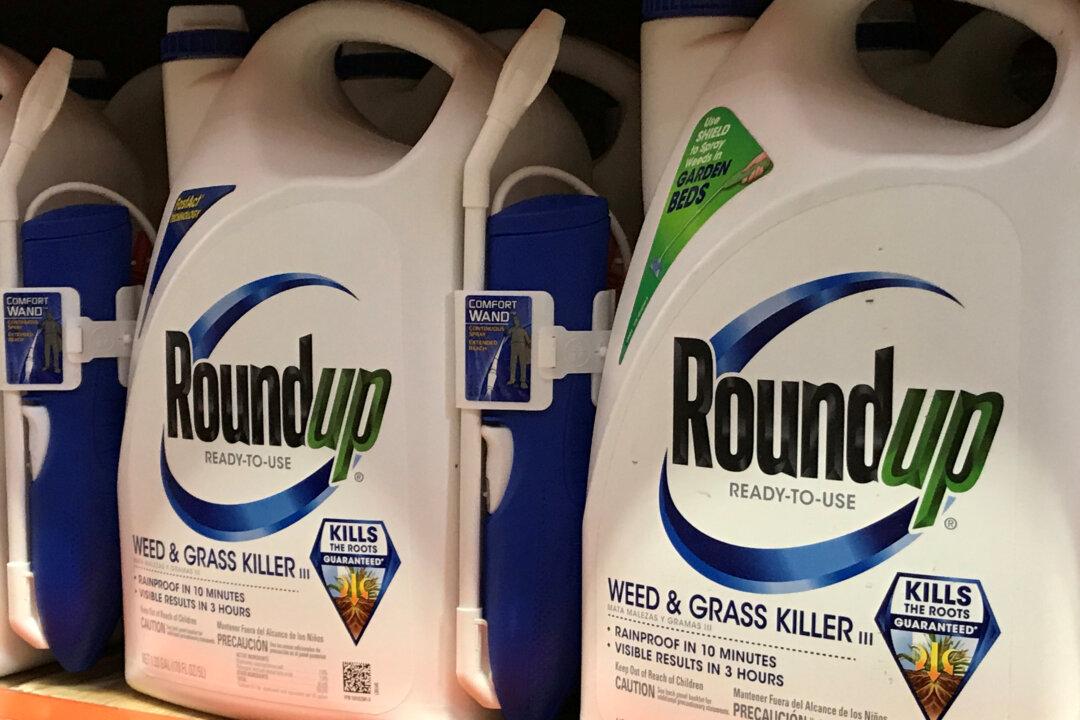California’s highest court rejected on Wednesday a challenge by Monsanto Co. to $86.2 million in damages to a couple who developed cancer after years of spraying Roundup herbicide on their property.
Roundup, a glyphosate-based weed-killer, has been on the market since the 1970s. Glyphosate, the most commonly used herbicide around the world, kills grasses and broadleaf plants. The International Agency for Research on Cancer (IARC), which is part of the World Health Organization, listed glyphosate as a probable carcinogen in 2015.




